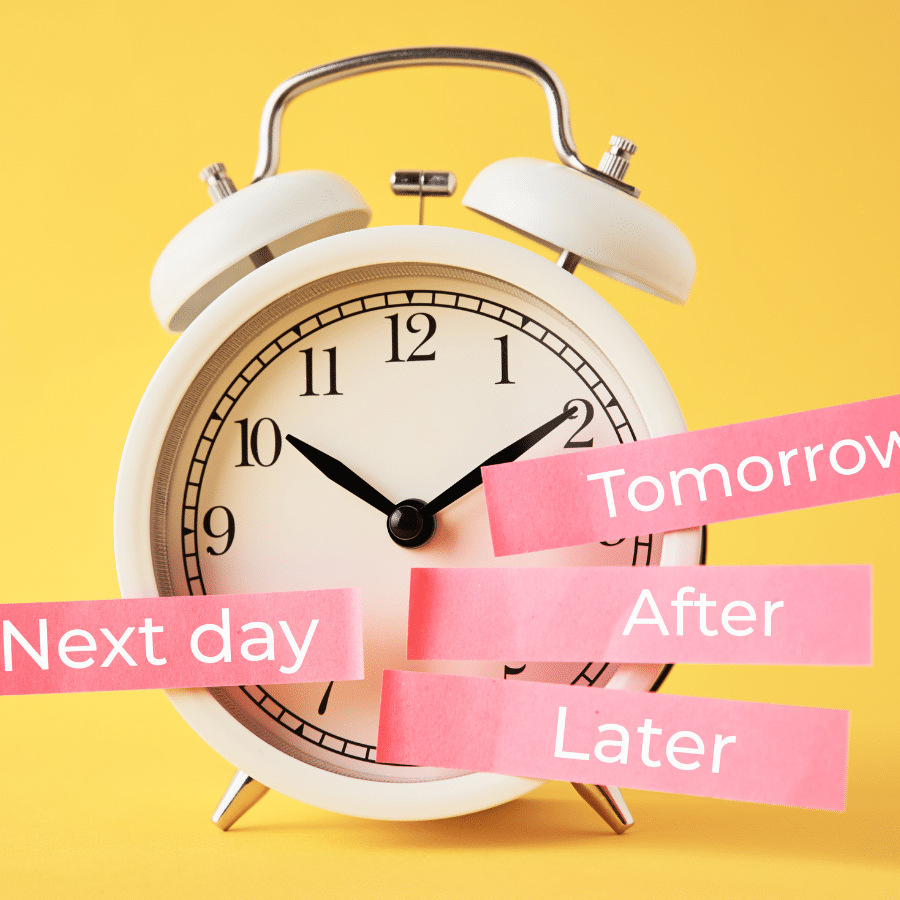Introduction
I’ve been there. You know, the place where you feel like you’re drowning in a sea of things to do and you just can’t bring yourself to actually do any of them? Procrastination is a real struggle for many people, but it’s not something that has to be endured. With these simple strategies, anyone can learn how to overcome procrastination and get more done in less time.
Change your environment
If you are working at home, it’s important to get away from distractions. If there’s no way for you to leave the house, turn off your phone and put it in another room–or even better yet, take a walk or do some exercise. If taking breaks isn’t an option for whatever reason, try going somewhere else where people aren’t around as much (like a library) so that there are fewer distractions and temptations for procrastination.
Break it down
If you’re having trouble getting started on a project, there is a way to break it down into smaller pieces.
- Break down large tasks into smaller ones
- Break down those small tasks further into sub-tasks
- Repeat this process until you have no more than five or six steps to take in order to complete your task
Write a to-do list
The key to overcoming procrastination is to get organized. When you have a list of tasks, it’s much easier to prioritize your work, break it down into smaller tasks and set goals for the day.
Here are some steps that will help:
- Write down what needs to be done on paper or in an electronic file. This can include anything from cleaning the house to writing a report or preparing dinner. The important thing is that all of your responsibilities are listed so that they don’t slip through the cracks! If possible, try breaking down big projects into smaller ones so that each item feels less overwhelming when looking at them individually (for example, instead of having “finish novel” as one long task on your list–which might seem overwhelming–write out all of its component parts such as “research topic,” “write first chapter,” etc.).
Reward yourself when you complete a task
When you complete a task, reward yourself with something that will help you achieve your goals and improve your health. For example:
- If you’ve been working out at the gym and finally complete a workout, reward yourself by going out for dinner with friends or buying new workout clothes.
- If you’ve been trying to cut back on sugar and caffeine in order to improve energy levels and sleep quality, reward yourself by getting an eye exam or treating yourself to a massage (or both)!
Get organized at work or home
In order to overcome procrastination, you need to get organized. You can do this by using a calendar and a to-do list that helps you plan out your day. If your workspace is messy or disorganized, it’s going to make it difficult for you to get things done because you won’t be able to find what you need when necessary.
There are many different types of planners available; some people prefer paper while others opt for electronic ones (like an app on their phone). Whatever type works best for your needs will depend on how much flexibility in scheduling and organization style works best with how often it would be used by default: If someone has very strict deadlines then they may want something more rigid whereas those who aren’t under such pressure might prefer more freedom in setting up their own schedule within reason limits set by themselves or others involved such as bosses/coworkers etcetera…
Understand why you procrastinate.
The first step to overcoming procrastination is understanding why you do it in the first place. Are there certain situations or environments that trigger your tendency to put things off? What makes you feel like taking on a task is too much of a challenge, even if it’s something small and manageable?
If these questions sound familiar, then consider keeping a journal for a few days where you write down any thoughts about your motivation for procrastinating. The more self-aware we can be about our own behavior and thought processes, the more likely we’ll be able to overcome them in future situations where they might hinder our progress or success at work or school.
With these strategies, you can overcome procrastination.
Here are some strategies that can help you overcome procrastination:
- Make a to-do list.
- Break down your tasks into smaller ones. This will make them seem less intimidating, and it will be easier for you to get started on the task if it’s broken down into smaller parts.
- Change your environment if necessary, such as going somewhere quiet where there aren’t so many distractions around or turning off social media notifications on your phone (if they’re distracting). This way, when it comes time to actually work on something instead of procrastinating, there won’t be anything preventing you from getting started right away!
Conclusion
I hope you’ve found these strategies helpful. If you’re still struggling to overcome procrastination, it might be time to get some professional help. You can find a therapist near you at Psychology Today’s website (https://therapists.psychologytoday.com/rms/).









